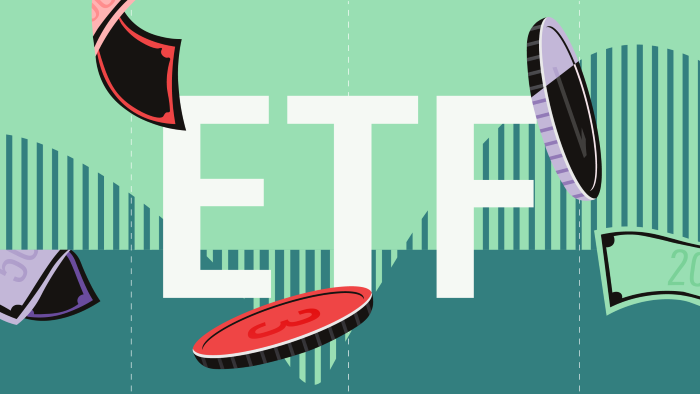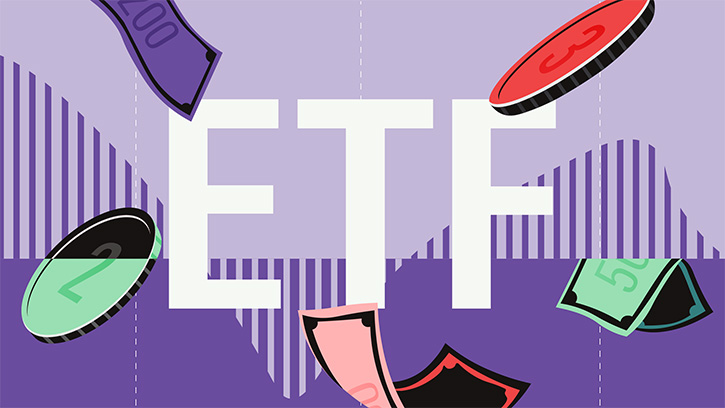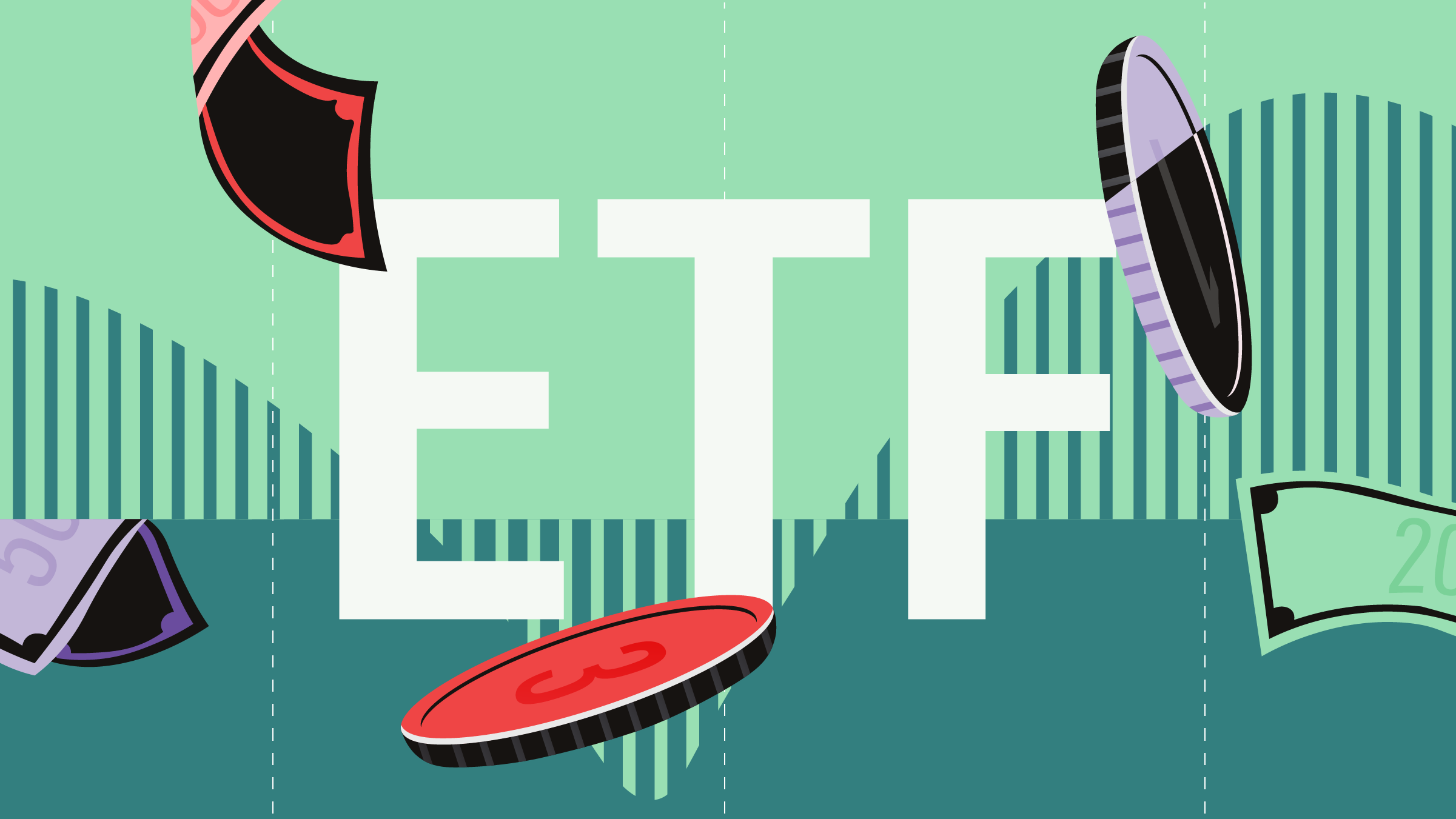Exchange-traded funds, or ETFs, are often low-cost instruments for investors to track popular indexes or leverage experienced manager choices in an attempt to beat the market. The best ones serve as building blocks for a portfolio, and unlike open-end mutual funds, all ETFs are traded throughout the day on an exchange.
In the second quarter of 2024, the worst performers included Hamilton Canadian Bank Mean Reversion Index ETF HCA and RBC Canadian Bank Yield Index ETF RBNK. Data in this article is sourced from Morningstar Direct.
To read about the best-performing ETFs, check out our other story.
Screening for the Worst-Performing ETFs
To find the quarter's worst-performing ETFs, we screened equity, allocation, and fixed income funds that trade within Canada for those that have at least C$10 million in total assets. We narrowed the list to only ETFs with parent pillars for their Morningstar Medalist Ratings of average or above, meaning our analysts believe they're backed by industry-standard asset management companies. We also excluded exchange traded notes, known as ETNs.
The 10 Worst-Performing ETFs for Q2 2024:
- Hamilton Canadian Bank Mean Reversion Index ETF HCA
- RBC Canadian Bank Yield Index ETF RBNK
- iShares S&P/TSX Capped REIT Index ETF XRE
- Vanguard FTSE Canadian Capped REIT Index ETF VRE
- Global X Equal Weight Canadian Banks Index Corporate Class ETF HEWB
- BMO Equal Weight Banks Index ETF ZEB
- Middlefield Real Estate Dividend ETF MREL
- Global X Equal Weight Canadian Bank Covered Call ETF BKCC
- TD Q US Small-Mid-Cap Equity ETF TQSM
- BMO Covered Call Canadian Banks ETF ZWB
Metrics for the Worst-Performing ETFs
Hamilton Canadian Bank Mean Reversion Index ETF
- Morningstar Rating: 3 stars
- Expense Ratio: 0.54%
- Morningstar Category: Financial Services Equity
The worst-performing ETF in the second quarter was the C$70 million Hamilton Canadian Bank Mean Reversion Index ETF, which lost 7.18%. The passively managed Hamilton Capital ETF fell further than the average 2.13% loss on funds in the financial services equity category in the second quarter. Over the past 12 months, the Hamilton Canadian Bank Mean Reversion Index ETF rose 7.24%, placing it in the 79th percentile within its category and underperforming the 17.93% return on the average fund.
The Hamilton Canadian Bank Mean Reversion Index ETF, launched in June 2020, has a Morningstar Medalist Rating of Bronze.
RBC Canadian Bank Yield Index ETF
- Morningstar Rating: 3 stars
- Expense Ratio: 0.32%
- Morningstar Category: Financial Services Equity
With a 6.23% loss, the C$235 million RBC Canadian Bank Yield Index ETF was the second-worst-performing ETF on our list for the second quarter. The passively managed RBC ETF fell further than the average 2.13% loss on funds in the financial services equity category. Over the past 12 months, the RBC Canadian Bank Yield Index ETF gained 7.84%, placing it in the 75th percentile within its category and underperforming the 17.93% return on the average fund.
The Gold-rated RBC Canadian Bank Yield Index ETF was launched in October 2017.
iShares S&P/TSX Capped REIT Index ETF
- Morningstar Rating: 1 star
- Expense Ratio: 0.61%
- Morningstar Category: Real Estate Equity
The third-worst-performing ETF in the second quarter was the C$1.1 billion iShares S&P/TSX Capped REIT Index ETF, which fell 6.18%. The iShares ETF, which is passively managed, fell further than the average 2.50% loss on funds in the real estate equity category. Over the past 12 months, the ETF fell 5.55% to place in the 100th percentile within its category, underperforming the category's average 1-year return of 3.77%.
The iShares S&P/TSX Capped REIT Index ETF has a Morningstar Medalist Rating of Bronze. It was launched in October 2002.
Vanguard FTSE Canadian Capped REIT Index ETF
- Morningstar Rating: 1 star
- Expense Ratio: 0.40%
- Morningstar Category: Real Estate Equity
The C$266 million Vanguard FTSE Canadian Capped REIT Index ETF was the fourth-worst-performing ETF in the second quarter, with a loss of 5.30%. The passively managed Vanguard ETF performed worse than the average 2.50% loss on funds in the real estate equity category. Over the past year, the ETF gained 0.47% to land in the 79th percentile within its category, underperforming the category's average one-year return of 3.77%.
The Silver-rated Vanguard FTSE Canadian Capped REIT Index ETF was launched in November 2012.
Global X Equal Weight Canadian Banks Index Corporate Class ETF
- Morningstar Rating: 4 stars
- Expense Ratio: 0.28%
- Morningstar Category: Financial Services Equity
Fifth-worst was the C$139 million Global X Equal Weight Canadian Banks Index Corporate Class ETF, which lost 4.82% in the second quarter. The passively managed Global X ETF fell further than the average 2.13% decline on funds in the financial services equity category. Over the past year, the Global X Equal Weight Canadian Banks Index Corporate Class ETF rose 8.80%, finishing in the 71st percentile within its category. It underperformed the category's average one-year return of 17.93%.
The Global X Equal Weight Canadian Banks Index Corporate Class ETF has a Morningstar Medalist Rating of Bronze. It was launched in January 2019.
BMO Equal Weight Banks Index ETF
- Morningstar Rating: 3 stars
- Expense Ratio: 0.28%
- Morningstar Category: Financial Services Equity
The sixth-worst-performing ETF in the second quarter was the C$3.6 billion BMO Equal Weight Banks Index ETF, which lost 4.80%. The passively managed BMO ETF fell further than the average 2.13% loss on funds in the financial services equity category. Over the past 12 months, the BMO Equal Weight Banks Index ETF rose 8.88%, placing it in the 68th percentile within its category and underperforming the 17.93% return on the average fund.
The BMO Equal Weight Banks Index ETF has a Morningstar Medalist Rating of Neutral. It was launched in October 2009.
Middlefield Real Estate Dividend ETF
- Morningstar Rating: 4 stars
- Expense Ratio: 2.22%
- Morningstar Category: Real Estate Equity
With a 4.60% loss, the C$122 million Middlefield Real Estate Dividend ETF was the seventh-worst-performing ETF on our list for the second quarter. The actively managed Middlefield ETF fell further than the average 2.50% loss on funds in the real estate equity category. Over the past 12 months, the Middlefield Real Estate Dividend ETF gained 2.79%, placing it in the 59th percentile within its category and putting it roughly in line with the 3.77% return on the average fund.
The Middlefield Real Estate Dividend ETF, launched in April 2011, has a Morningstar Medalist Rating of Bronze.
Global X Equal Weight Canadian Bank Covered Call ETF
- Morningstar Rating: 2 stars
- Expense Ratio: 2.19%
- Morningstar Category: Financial Services Equity
The eighth-worst-performing ETF in the second quarter was the C$167 million Global X Equal Weight Canadian Bank Covered Call ETF, which fell 4.59%. The Global X ETF, which is passively managed, fell further than the average 2.13% loss on funds in the financial services equity category. Over the past 12 months, the ETF rose 3.71% to place in the 100th percentile within its category, underperforming the average one-year return of 17.93%.
The Global X Equal Weight Canadian Bank Covered Call ETF, launched in May 2011, has a Morningstar Medalist Rating of Neutral.
TD Q US Small-Mid-Cap Equity ETF
- Morningstar Rating: 5 stars
- Expense Ratio: 0.45%
- Morningstar Category: US Small/Mid Cap Equity
The C$262 million TD Q US Small-Mid-Cap Equity ETF was the ninth-worst-performing ETF in the second quarter, with a decline of 4.23%. The actively managed TD ETF performed worse than the average 2.89% loss on funds in the US small-cap/mid cap equity category. Over the past year, the ETF gained 20.92% to land in the 4th percentile, outperforming the category's average one-year return of 11.61%.
The TD Q US Small-Mid-Cap Equity ETF has a Morningstar Medalist Rating of Neutral. It was launched in November 2019.
BMO Covered Call Canadian Banks ETF
- Morningstar Rating: 3 stars
- Expense Ratio: 0.71%
- Morningstar Category: Financial Services Equity
Tenth-worst was the C$2.9 billion BMO Covered Call Canadian Banks ETF, which lost 4.14% in the second quarter. The actively managed BMO ETF fell further than the average 2.13% loss on funds in the financial services equity category for the quarter. Over the past year, the BMO Covered Call Canadian Banks ETF rose 5.23%, finishing the 12-month period in the 93rd percentile within the financial services equity category. It underperformed the category's average one-year return of 17.93%.
The Neutral-rated BMO Covered Call Canadian Banks ETF was launched in January 2011.
What Are ETFs?
Exchange-traded funds are investments that trade throughout the day on stock exchanges, much like individual stocks. They differ from traditional mutual funds—known as open-end funds—which can only be bought or sold at a single price each day. Historically, ETFs have tracked indexes, but in recent years, more ETFs have been actively managed. ETFs cover a range of asset classes, including stocks, bonds, commodities, and most recently cryptocurrency.
ETFs: More Ideas to Consider
Investors who would like to find more ETF investment ideas can do the following:
- Use the ETF Screener tool to find the best ETFs according to your specific criteria. You can search for funds based on their fees, Morningstar Medalist Ratings, manager tenures, and more.
- Find ideas specific to your needs, or learn more about ETFs, on our ETF Insights page.
- Compare funds and ETFs side by side and easily follow their valuations, ratings, and fees.
This article was generated with the help of automation and reviewed by Morningstar editors.

























